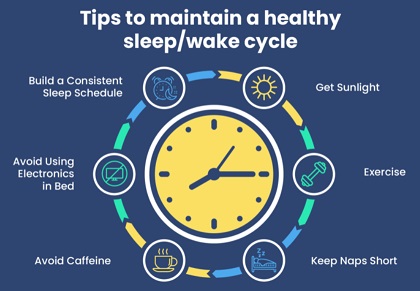
Round and white coloured sleeping tablets.
According to recent published reports, nearly 20% of American adults use a drug to help them sleep, either occasionally or regularly. Women are more likely than men to take medication for sleep and the percentage doing it generally increased with increasing age.
Do similar numbers of Africans use sleep medications to help them to sleep?
Unfortunately, not as much research is available within the African context to answer this question well.
In considering this matter further, this article will provide you with valuable information about the following:
Sleep medications, also sometimes referred to as “Sleep aids” consist of multiple types of drugs and compounds that affect the body in distinct ways.
Sleep medications are available under the following three broad categories:
Globally, prescription sleep medications and over-the-counter drugs are the commonest types used in the treatment of sleep problems.
Prescription sleep medications work by altering chemicals in the brain that are involved in regulating sleep and wakefulness and their mode of action will depend on the specific brain chemicals affected.
Prescription sleep medications are ordered by a doctor for a specific patient.
They are only available for purchase from licensed pharmacies or in-practice dispensaries.
Prescription medications generally are closely regulated by many nation state regulators. This process is poorly enforced in some nation states in Africa.
A list of common prescription medications that are in use for sleep problems is made available below by their pharmacological class and mode of action
In this category, are drugs that are designed to make you feel sleepy. An example is the benzodiazepine group of drugs (e.g., Lorazepam, Clonazepam and Alprazolam, etc.).
“Benzo” as act by increasing the availability of a certain chemical called gamma aminobutyric acid (GABA) in the brain. GABA facilitates drowsiness.
Due to their sedative effect, benzos are commonly used to treat anxiety and insomnia related sleep disorder.
Newer non-benzo hypnotics (the Z-meds) like Zolpidem, Zaleplon, and Eszopiclone are among the most prescribed sleep meds in the United States
An example of a sedative drug is barbiturate. This kind of drug is not in common usage to treat sleep problems anymore because of its high risk of addiction and overdose.
Common side effects of hypnotics include drowsiness, dizziness, fatigue, headache, lightheadedness, weakness, impaired coordination and balance.
Melatonin is a hormone that is naturally produced by the body. It facilitates sleep through promotion of the circadian rhythm.
A melatonin receptor agonist is a prescription drug that is different from the popular over-the-counter melatonin supplement.
It mimics the effect of melatonin and is typically used to help people who have problems falling and staying asleep. It also helps to regulate the sleep-wake cycle in tune with the day and night cycle.
Examples of melatonin receptor agonists include, Ramelteone, prolonged release Melatonin and Tasemelteon.
Side effects of this class of sleep aids include dizziness, drowsiness, fatigue, headache, nausea, and taste dysfunction. Other more serious side effects are depression, insomnia, hallucination, and mania.
Antidepressants are drugs that are commonly used to treat depression.
There are different classes of antidepressants based on their mode of action. They include selective serotonin reuptake inhibitors (SSRIs), non-selective serotonin reuptake inhibitors (SNRIs) and tricyclic antidepressants (TCAs),
Antidepressants have sedative effects and for this reason are sometimes prescribed either to treat the perceived root cause of a sleep problem (i.e., depression) or to promote sleep.
Common side effects of SSRIs and SNRIs include agitation and anxiety, nausea, diarrhoea or constipation, loss of appetite, dizziness, headache and insomnia (not sleeping well) or hypersomnia (feeling very sleepy)
Anticonvulsants are drugs that are used primarily to treat seizures, and may be used “off label” in some cases to treat specific types of sleeping problems like restless legs syndrome, etc.
Example include carbamazepine.
Common side effects of this class of drugs include dizziness, drowsiness, rash, nausea, fatigue, tremor (involuntary trembling or uncontrolled shaking) and weight gain.
Antipsychotics are drugs used commonly to treat the symptoms of mental health disorders such as delusions and hallucinations.
Because of their sedative effect, they are sometimes prescribed off-label as a treatment for sleep problems, especially when associated with mental illness.
There is little evidence that antipsychotics actually help you fall or stay asleep. For this reason, their benefits as sleep medication are questionable while their risks can be serious.
Example include Haloperidol, Risperidone, Olanzapine and others.
Common side effects of this class of drugs include confusion and agitation, blurred vision, constipation, difficulty urinating, dry mouth, erectile dysfunction and hallucination.
Non-prescription (Over-the-counter, OTC) drugs can be purchased without a prescription and are frequently sold in pharmacies, chemists, and many supermarkets.
There are many different brands of over-the-counter sleep medications. Majority contain antihistamines as active ingredients.
Antihistamines are commonly used to treat allergies. Since antihistamines frequently cause drowsiness, this has led to their use as an OTC sleep aid especially in the treatment of travel related sleep problems.
Tolerance to antihistamines are known to occur with prolonged use and adverse side effects to antihistamine may be quite high in the elderly.
Example include Chlorpheniramine, Diphenhydramine and others.
Common side effects of this class of drugs include drowsiness, reduced coordination, reduced reaction speed and judgement, dry mouth, blurred vision, constipation and difficulty urinating.
A wide range of unregulated substances are sold in pharmacies, chemists, supermarkets and local African markets (e.g., Nigeria) as sleep aids under the cover of dietary supplements or herbs.
There is limited research documenting the benefits and risks of most dietary supplements and herbs that are promoted as sleep aids. For this reason, they are not generally recommended by allopathic doctors as safe to use in the treatment of sleep problems.
No prescription is required to purchase these agents which include
Many people regardless of age use sleeping aids at one time or the other to help them to sleep.
Interestingly, the use of sleep medications has been reported to be widespread among astronauts over a ten year study period.
In the United States, a National Health Interview Survey found that
Comparatively detailed studies are hard to come by from Africa . But anecdotal reports from various sources indicate that adult working women use sleeping medications to aids sleep than men. More Africa-based studies are needed on this matter to help shape policy on population sleep health.
‘
Like all drugs and even herbal medicines, sleep medications may have diverse adverse effect.
For this reason and if you fall into any of the categories of people below, you are best advised not to take or give any type of sleep medications to a family member without first speaking to your doctor, pharmacist or other caregivers:
If you ever need to take sleep medications, it is important to use them wisely and safely.
Here is how you can do so:
1. Talk first with your health care provider. Always talk with your doctor or other health care provider about your sleep issues and whether taking sleep medication is right for you.
2. Discuss other meds that you are taking. Let your doctor or pharmacists know the other drugs that you are taking before you start taking sleep medications. Drugs interactions do occur and your doctor or pharmacist must choose the most appropriate sleep meds to minimise the possibility of drug interaction.
3. Use in the short-term only. Majority of sleep problems are usually due to environmental issues and poor sleep hygiene. Non-pharmacological management options are better for such problems. If sleep meds must be used, they should be for the shortest possible time.
4. Follow use instructions: Use your prescribed sleep meds as directed by your doctor or pharmacist only. Do not alter the dosage or skip a dose only to take a double dose later.
5. Look out for adverse effects: Be mindful and look out for any adverse or untoward effects that may occur in association with your use of sleep meds. Talk to your doctor or pharmacist if you notice any of the following warning signs:
Sleep medications are not required in order to get good quality nightly sleep. They may however be needed in the short-term to resolve some sleep issues following appropriate consultation with your healthcare provider.
Sleep problems generally are categorized into two broad groups as follows:
Primary sleep disorders include those that are not due to another medical or psychiatric conditions. They are further sub-categorised as
Primary sleep disorders with distinct symptoms are classified as either Dyssomnia or Parasomnia.
Secondary sleep disorders include those that occur as a result of another physical or mental condition.
More information about the types, symptoms, diagnosis and treatment of different sleep disorders is available here.
Click here for more information on tips on how to sleep better without using sleep aids.

Graphics on Tips for healthy sleep.
Credit: National Institute of General Medicine (NIGME) via Sleep Foundation.
Takeaway
Sleep medications are of various types and include over-the-counter and prescription meds. Although sleep meds may be needed in the short-term to help break a brief period of sleep problems, they are not necessary in the long term in order to obtain regular and better sleep daily.
Consistent practice of good sleep hygiene will provide better sleep health without the serious side effects that result from the use of sleep medications.
Talk with your doctor if you or a loved one is having sleep problems before going to purchase any sleep aid or medication.
Related:
Normal Sleep: What African should know
.jpg)
Sleep disorders - An African perspective: Types and symptoms
Slideshow: Who is at risk of major sleep disturbances?
Resources
Nearly 1 in 5 American Adults Takes Sleep Meds. Retrieved January 26, 2023.
Breus, M.J.: Who is taking sleeping pills?
Women, older adults and those with lower income are more likely to use sleep medication, survey finds, despite potential health harms. Retrieved February 6, 2023.
Sleeping pills: The pros and cons. Retrieved February 6, 2023
Tossing and turning? Do you really need sleeping pills? Retrieved February 6, 2023
Ten-year astronaut sleep study reveals widespread use of sleeping pills in space. Retrieved February 6, 2023.
Allen KD, Renner JB, DeVellis B, Helmick CG, Jordan JM. Racial Differences in Sleep Medication Use: A Cross-Sectional Study of the Johnston County Osteoarthritis Project. Annals of Pharmacotherapy. 2008;42(9):1239-1246. doi:10.1345/aph.1L111. Retrieved January 26, 2023. PDF Download.
Reuben, C., Nazik Elgaddal, M.A., and Black, L. I.: Sleep medication use in adults aged 18 and over: United States, 2020. NCHS Data Brief No. 462, January 2023.
Komolafe MA, Sanusi AA, Idowu AO, Balogun SA, Olorunmonteni OE, Adebowale AA, Fawale MB, Mosaku KS. Sleep medicine in Africa: past, present, and future. J Clin Sleep Med. 2021 Jun 1; 17 (6):1317-1321. doi: 10.5664/jcsm.9218. PDF Download.
Muanya, C.: Natural remedies for sleeplessness unveiled. The Guardian, Nigeria, Sunday Magazine. 04 February 2015. Retrieved, February 1, 2023.
S Moch (2012) Sleepless in South Africa: insomnia is not just a night-time problem, South African Family Pactice, 54:4, 277-285.
Aragón-Arreola, J.F., Moreno-Villegas, C.A., Armienta-Rojas, D.A., De la Herrán-Arita, A.K.: An insight of sleep disorders in Africa. eNeurologicalSci, Volume 3, 2016, Pages 37-40. PDF Download.
Nsengimana, A., Mugabo, E., Niyonsenga, J. et al. Sleep quality among undergraduate medical students in Rwanda: a comparative study. Sci Rep 13, 265 (2023).
Published: February 6, 2023
© 2023. Datelinehealth Africa Inc. All rights reserved.
Permission is given to copy, use and share content freely subject to attribution as to source.
DATELINEHEALTH AFRICA INC., is a digital publisher for informational and educational purposes and does not offer personal medical care and advice. If you have a medical problem needing routine or emergency attention, call your doctor or local emergency services immediately, or visit the nearest emergency room or the nearest hospital. You should consult your professional healthcare provider before starting any nutrition, diet, exercise, fitness, medical or wellness program mentioned or referenced in the DatelinehealthAfrica website. Click here for more disclaimer notice.